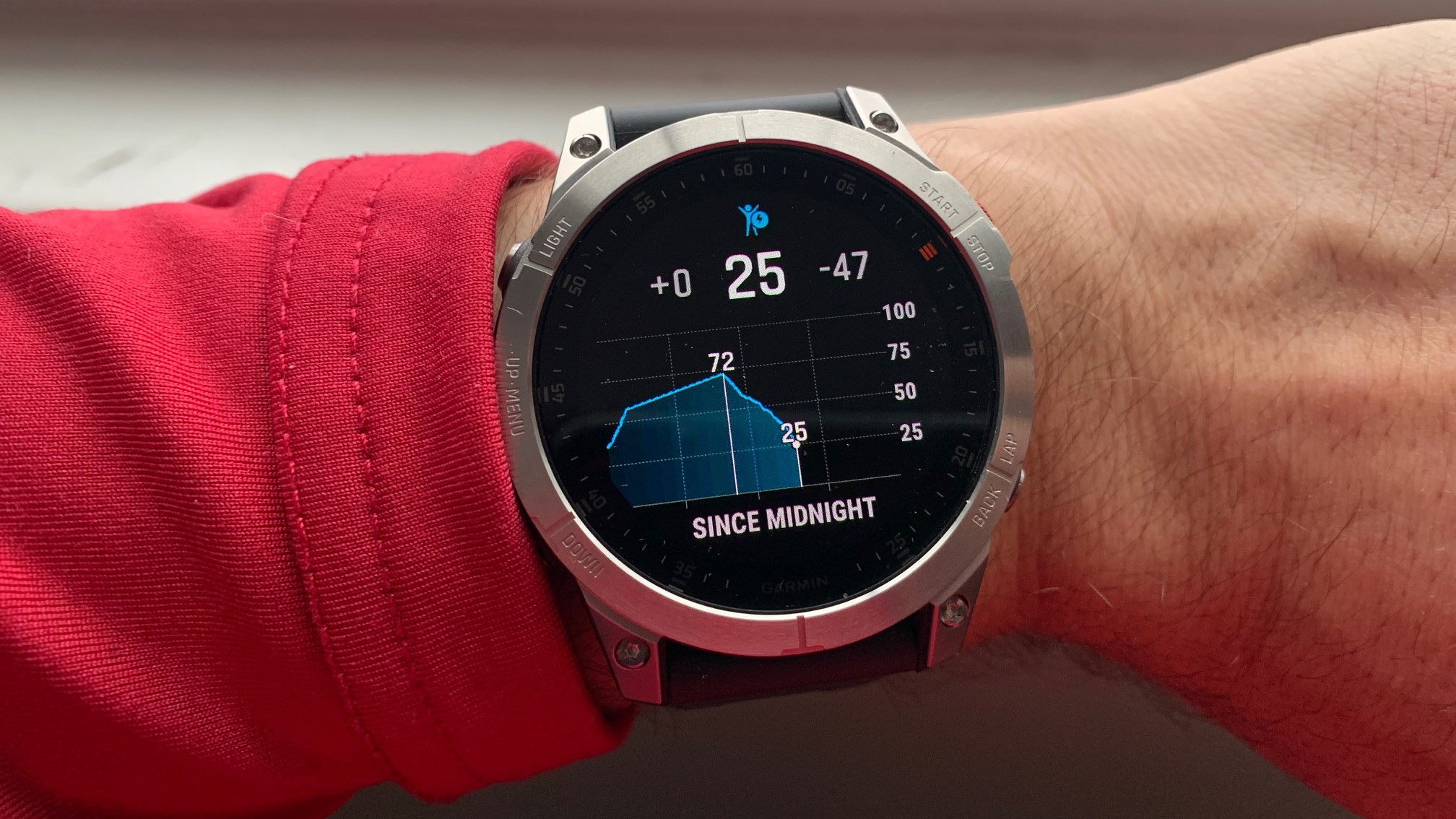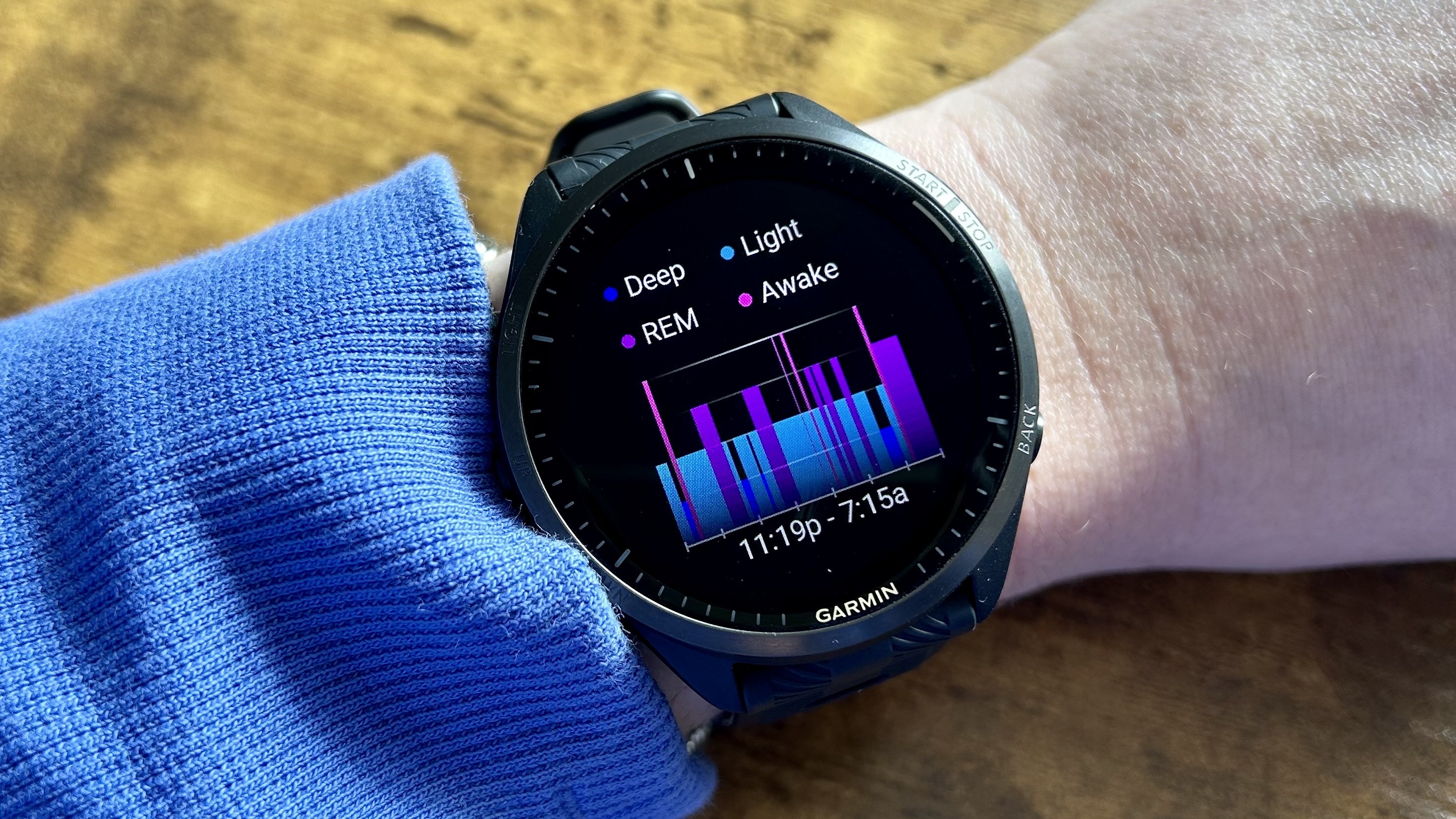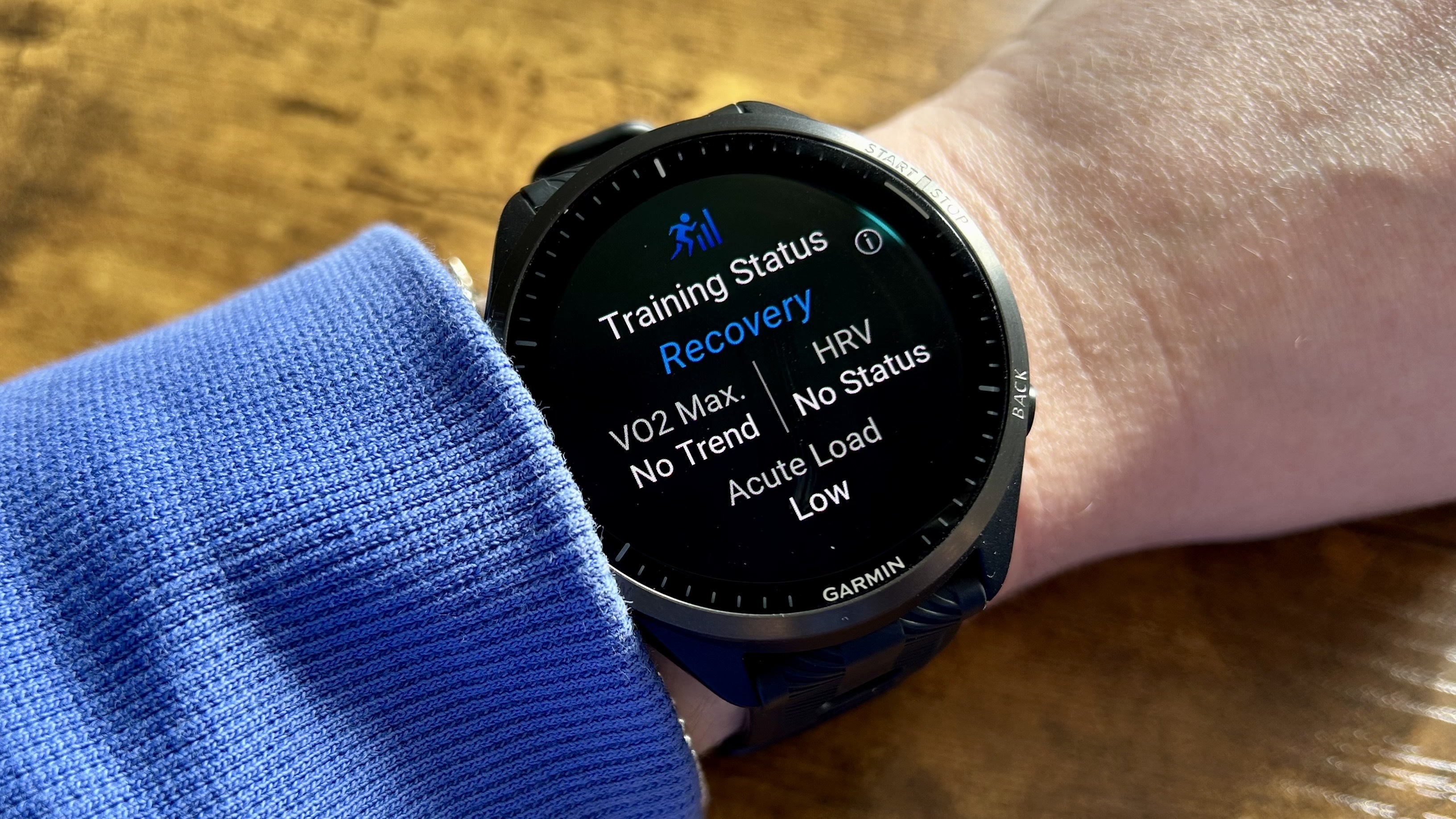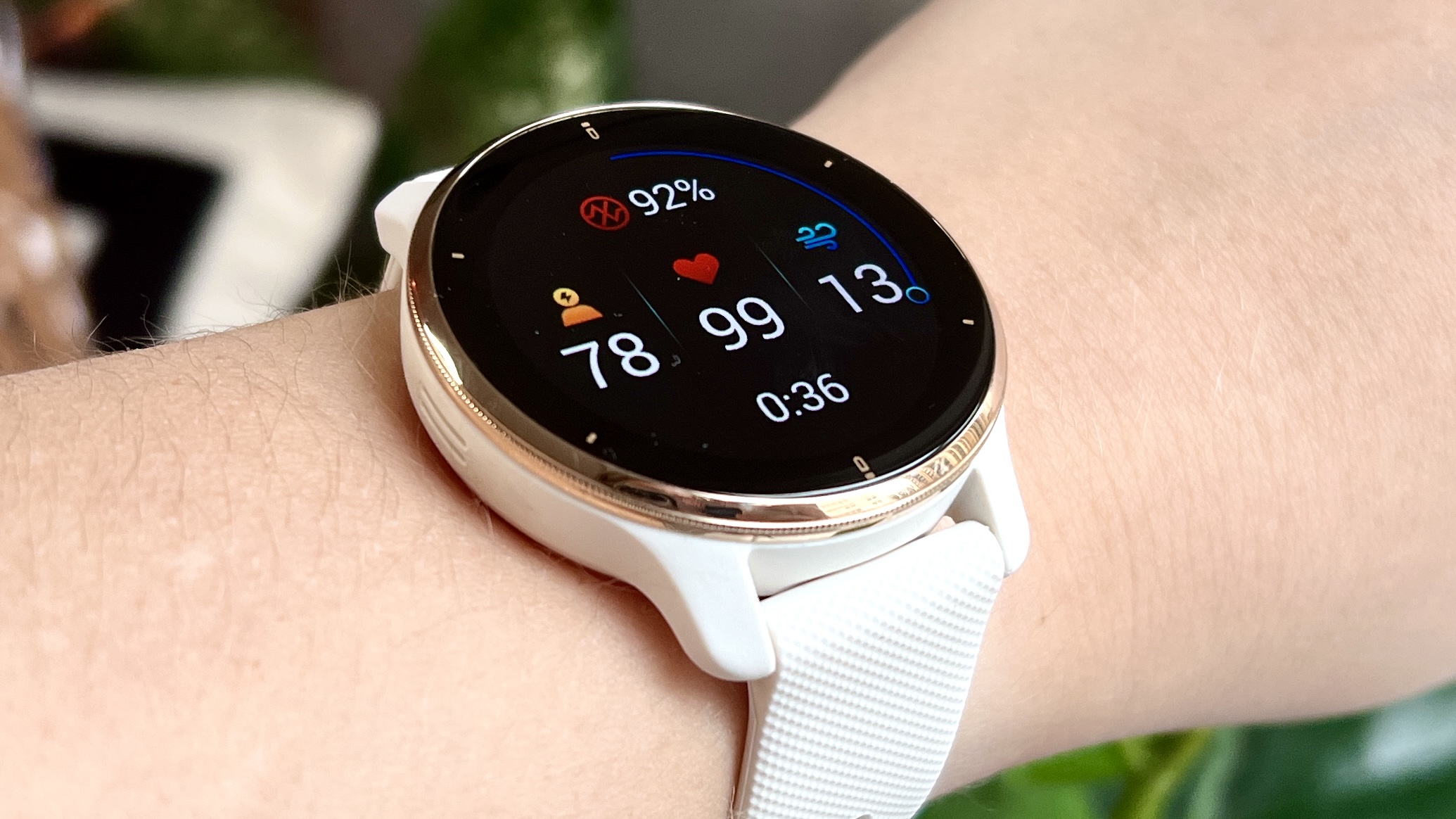
If you’ve recently bought one of the best Garmin watches, you might be wondering what the Body Battery function means, and how accurate it is at predicting how ready you are for a hard run or workout. Body Battery is a feature implemented on some of Garmin’s newer watches, like the Fenix 7, Epix 2, Forerunner 965, and Forerunner 265.
The Body Battery function looks at a number of different metrics to give you a ‘score’ out of 100 to estimate how much energy you have throughout the day. If you’ve slept well and recovered from your last workout, your body battery will increase until it hits 100. If you’ve run a marathon, then taken a long-haul flight, your body battery can hit a low of 5. You’ll never actually hit zero, and you can definitely still function with a Body Battery score of 5, but you’ll probably feel pretty exhausted.
“The more you use your phone, the faster it runs out of battery. Our bodies work the same way," Garmin explains. "The more stressful and active your life is, the faster your reserves are depleted.”
Sleep and sitting around with your feet up replenish your Body Battery score. Physical activity and stress — whether that’s good stress like a race or bad stress, like a deadline at work — drains your Body Battery. But how can you use this tool and how does it work? Read on to find out more.
How does Garmin calculate your Body Battery score?
The Body Battery number is based on the charge and drain on your body. The charge number reflects how much rest your body has had — rest can be naps during the day, or periods of sitting with your feet up, but the best way to boost your rest number is to sleep. This is when the body repairs and recovers from hard activities and stress, so it’s important for your physical and mental health. Garmin measures good quality sleep by looking for an increase in heart rate variability (HRV).

The drain on your body is a reflection of the physical and mental drain on your body throughout the day. Physical activity takes a toll on your body — higher intensity efforts will drain your Body Battery faster than low-intensity activities, like taking a walk. Garmin measures your fitness level by your VO2 max score (VO2 max is the maximum rate of oxygen the body is able to use during exercise), as you get fitter and your VO2 max increases, exercise will have a smaller drain on your Body Battery.

The Body Battery score also looks at the mental drain of stress throughout the day. Maybe you missed your train, or had a stressful commute — Garmin identifies stress by analyzing your heart rate, as a stressful situation triggers your sympathetic nervous system, also known as a fight-or-flight response.
Plus, it’s not always situations that feel stressful that can trigger this stress response in your body. It might be the excited anticipation the days before a race, a first date, or hours spent in an airport waiting for your flight before a holiday.
How accurate is Garmin’s Body Battery and how should you use it?
One of the benefits of wearing one of the best running watches or best smartwatches on the market is that these devices are designed to be worn 24/7, and give us a greater insight into our training as a whole. The best way to use Body Battery is to think about it as a cumulative thing — it’s not much help if you only look at it after a run like you would with some of the other stats on your Garmin watch, but if you keep an eye on it over the course of a few weeks, or months, you can see patterns, and how well your body is coping with a training plan.
It can also help you notice the impact certain situations have on your body. Say you go out for a few drinks after work — alcohol will increase your stress levels, and if you drink in the evening, this stress level is likely to be elevated for a few hours as you sleep, and you won’t ‘rest’ until these have dropped. “The stress of metabolizing alcohol drains your Body Battery faster and degrades the restorative quality of sleep, which means slower recharging,” Garmin says. Of course, this shouldn’t stop you from enjoying a drink with friends, but perhaps don’t try and wake up and do a hard session the next morning.

Your Body Battery might also be a sign that you’re getting sick and that you need to take things a little easier. When you’re run down or unwell, it’s normal for your stress levels to remain elevated, so if you’ve gone for a run that wasn’t particularly difficult, but find it’s drained your body more than expected, it could be a sign you’re unwell. My drained body battery and elevated heart rate were one of the signs I had Covid — despite not having any symptoms.
Like with all of these techy features, you can dip into the Body Battery function as much, or as little as you’d like. It’s a clever feature, that doesn’t just look at how hard you’ve worked out, and how well you’ve slept. Stress is a huge drain on the body, and every athlete I’ve ever interviewed (and new parent for that matter!) talks about taking naps in the afternoon, so looking at the body as a whole can be beneficial when it comes to training smarter and recovering better.







